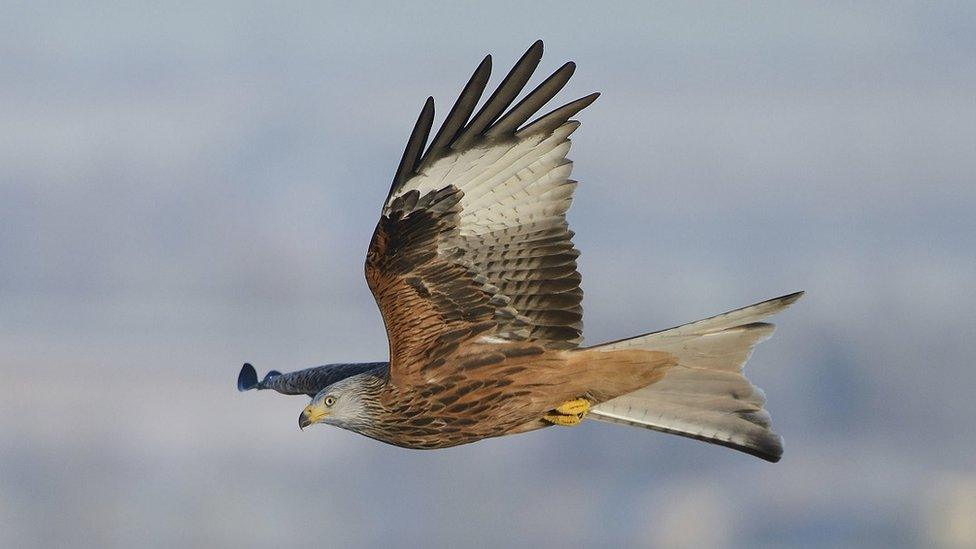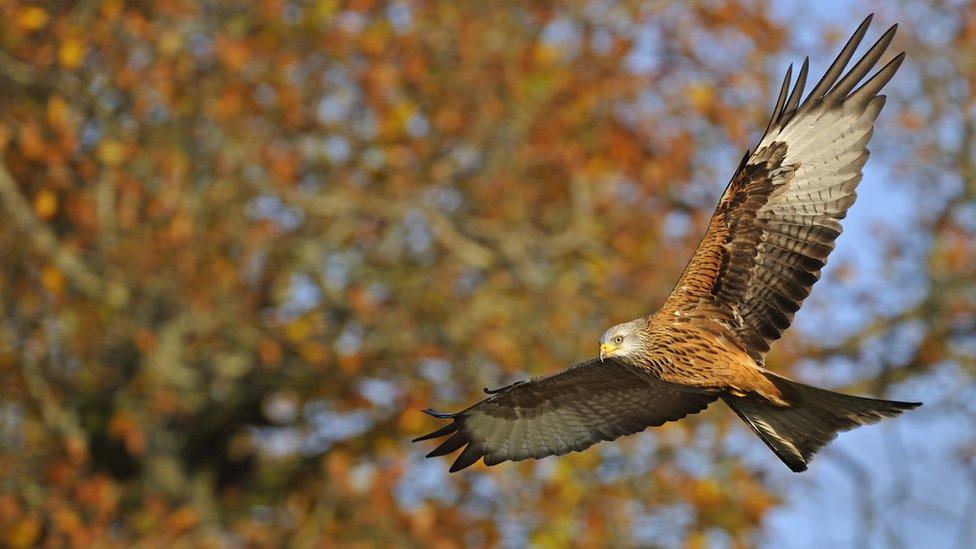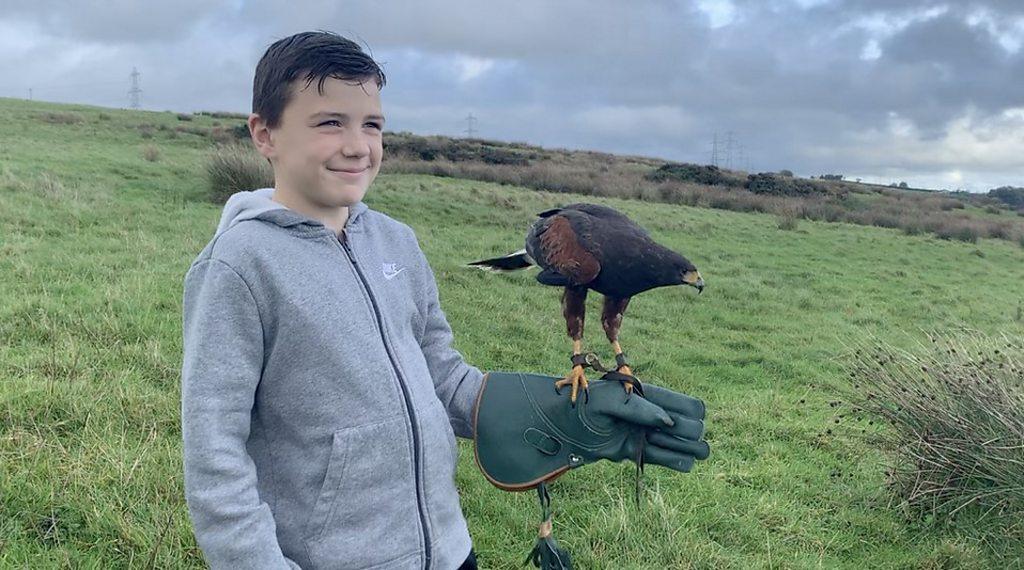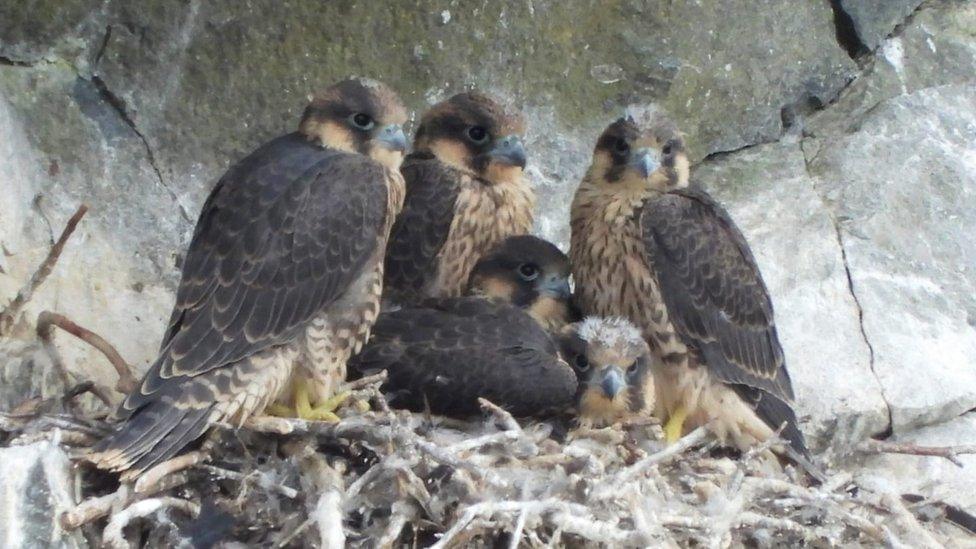RSPB: Crime against birds of prey in Northern Ireland 'going undetected'
- Published

Birds of prey like the red kite have been the focus of conservation efforts in recent years
Crime against birds of prey in Northern Ireland is going undetected and under-reported, according to the Royal Society for the Protection of Birds.
Just one incident was confirmed in 2021, when the total for the whole of the UK was 108.
The charity's report said the low detection rate showed the need for increased awareness and reporting of potential crimes.
It has appointed a local dedicated investigations officer.
They will work with the police and other agencies to examine the statistics.
The data from the Royal Society for the Protection of Birds (RSPB) found there had been 30 incidents involving 26 birds in the five years from 2016 to 2020.
Poisoning made up just over half of the cases - 16 - while shooting accounted for 11.
Crime can also take the form of trapping birds or destroying nests.
Previous reports by other agencies have made similar findings.
Birds of prey include species like the red kite and peregrine falcons, both of which have been the focus of conservation efforts in recent years.
All wild birds in Northern Ireland are protected under the Wildlife (Northern Ireland) Order 1985.
The RSPB NI's investigations officer, Dean Jones, said the public had a role to play in ending "raptor persecution".
"If you see a dead or dying bird of prey in suspicious circumstances, please report it to the police and myself at the RSPB. Email crime@rspb.org.uk. You can also call the special Raptor Crime Hotline on 0300 999 0101," he said.
"Your evidence may be vital in helping us catch wildlife criminals."
Mark Thomas, RSPB head of investigations UK, said the appointment of a dedicated officer in 2021 was a "significant step" in identifying and tackling raptor persecution in Northern Ireland.
"The addition of Dean to our UK team is already helping us understand more about the impact of wildlife crime on some of Northern Ireland's priority raptor species, such as red kites and peregrines, which everyone should have the pleasure of seeing and enjoying," Mr Thomas said.
"This additional resource will also enable increased monitoring of hen harriers, a species which has undergone a steady decline in breeding numbers in Northern Ireland over the last few decades."
Related topics
- Published15 May 2020

- Published24 October 2021

- Published12 June 2020
